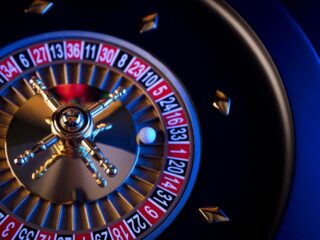
In both the casino and sports betting worlds, skill and strategy are the ultimate assets for those looking to gain an edge. While luck has its place, experienced bettors know there’s a depth to the art of placing calculated bets that mirrors the careful tactics used by professional casino players. Surprisingly, some of the sharpest sports bettors today have adopted principles from classic casino games like poker and blackjack, bringing lessons from the felt into the arena of sports. Here’s a breakdown of a few strategic elements borrowed from casino gaming that work wonders in the sports betting world.
Bankroll Management: Protecting Your Playing Power
One of the golden rules of professional gambling—casino or otherwise—is bankroll management. In a casino setting, seasoned players never bet their entire bankroll on one game, understanding that smart, consistent plays keep them in the game longer. This mentality has seamlessly transitioned into sports betting. Instead of throwing a large amount on a single match, top sports bettors spread out their risk, placing multiple smaller bets to reduce the impact of any single loss. Much like poker players saving chips for later rounds, sports bettors who focus on bankroll longevity gain an advantage over those who bet impulsively.
A good rule to follow, borrowed straight from the casino world, is the 1-5% rule: never risk more than 1-5% of your total bankroll on a single bet. This strategy builds in a layer of protection, ensuring that even if losses occur (and they will), there’s enough left to come back strong. For casino players, this rule is instinctual—it’s what keeps them competitive through rough patches, and the same can be said for sports bettors. A solid resource on bankroll management is the Guide to Casino Bankroll Management on Casino.co.uk.
The Psychology of Patience: Timing is Everything
If there’s one trait common to both high-stakes poker players and successful sports bettors, it’s patience. In a casino, a poker player waits for the right hand, the blackjack player counts cards to find the ideal moment to up the ante, and even slot machine enthusiasts know when to move to another machine or give it one last spin. This patience translates remarkably well into sports betting.
Sports bettors who analyze games and wait for favorable odds—especially live bettors—often find themselves in a stronger position than those who jump on the first odds they see. In-game betting opportunities can shift significantly based on events like injuries or the score at halftime. By exercising patience, bettors avoid reactive plays and pounce on opportunities only when they’re ripe. The casino mindset says to always wait for the best hand, and sports bettors who adopt this same principle often have higher win rates.
Understanding the Odds: More Than Just Numbers
Casino games are fundamentally about odds and probabilities, and professional gamblers spend years learning how to calculate and understand these figures. Blackjack players, for example, know the odds of a card sequence hitting in their favor, and poker players often calculate “outs”—the cards that will help their hand—in split seconds.
Similarly, sports bettors who succeed are those who truly understand the odds rather than just seeing them as numbers. For example, odds of 2.0 on a soccer match mean there’s an implied probability of 50% that a specific outcome will happen. But true strategists go deeper, understanding that implied probabilities can sometimes clash with the actual likelihood of events based on performance trends, team news, or even weather conditions. By evaluating odds in this way, bettors bring a scientific edge into their picks, much like card counters bring math into blackjack. It’s more than luck—it’s a game of calculated expectation.
Learning to Read Patterns: Analyzing Data Like a Card Counter
One of the skills that separates seasoned casino players from amateurs is their ability to read patterns and spot anomalies. Take card counters in blackjack, who track which cards have been played to determine the probability of high-value cards appearing. Similarly, sports bettors who analyze game trends and performance statistics are engaging in a form of pattern recognition that informs their bets.
By studying a team’s history, recent performances, or a player’s stats over time, bettors can find patterns that give them insight into possible outcomes. For instance, if a soccer team consistently concedes goals after the 70th minute, a bettor might place a “goal after 70 minutes” bet or explore in-play betting options as the clock ticks down. This approach requires analyzing the data and picking up trends—skills honed by countless blackjack players, who have brought pattern recognition to an art form.
In a way, casino and sports betting share a common pulse: the drive to win and the need to be smart about it. For those who might never step foot in a casino, these lessons from the tables are quietly revolutionizing sports betting strategies. And who knows—maybe sports bettors will be the next ones to make a winning mark in casino gaming.








